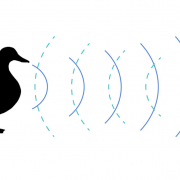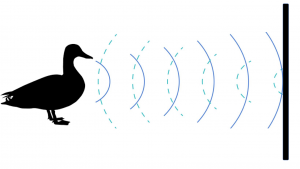Does a Duck’s Quack Echo
Will a duck’s quack echo?
It’s been a part of folklore for as long as many of us can remember. We learned it as kids from our crazy uncle or our dad’s hunting buddy. There was never any scientific proof offered, just an unapologetic statement: “I’ve never heard a duck’s quack echo. The quack sound is too flat to echo”. The TV show Mythbusters even did a whole segment on the topic, using a live duck and trying to get it to quack in an echo-friendly environment. (Spoiler: they were not successful at making the duck quack on command)
The TV show Mythbusters even did a whole segment on the topic, using a live duck and trying to get it to quack in an echo-friendly environment. (Spoiler: they were not successful at making the duck quack on command)
Link to Mythbusters Wikipedia Article: https://en.wikipedia.org/wiki/MythBusters_(2003_season)
Well, it seems we can put this myth to bed once and for all. Just looking at the science behind it, there’s no chance it is true. A duck’s quack is a sound wave, and any wave can be reflected, so therefore a duck’s quack will echo.
Well then, why do we never hear a duck’s quack echo?
Is it because ducks mostly hang out in open areas such as marshes and lakes, where an echo is highly unlikely? It is because the sound profile of their quack reflects less than other sounds, so the echo is much quieter and harder to detect with the human ear? Does the Mythbusters result make sense, that the quack sound profile “swallows” the echo, making it very hard to decipher? These theories are hard to prove, but one thing is for sure, the quack will echo.
So, don’t worry about hearing a quack echo down the hallway of your house while practicing with your new duck call . There’s nothing wrong with the sound coming out of your call, it’s just wave propagation working correctly.
Reference Article from CNN: http://www.cnn.com/2003/TECH/science/09/08/duck.quack/index.html




